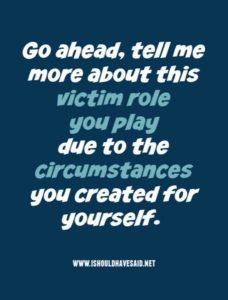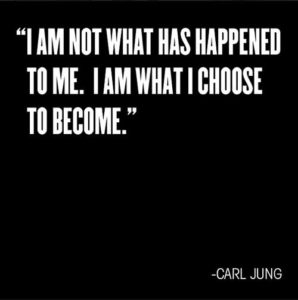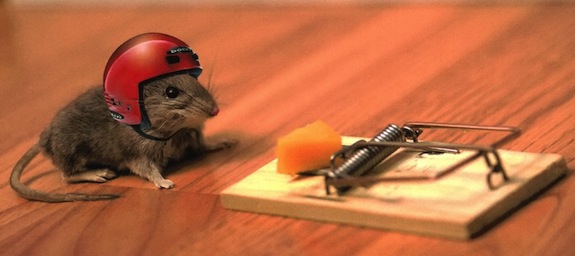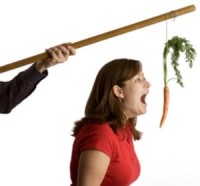 And we are who we are because we do what we do.
And we are who we are because we do what we do.
After a friend challenged me to get clearer (good idea, huh?) about what I do as a coach, this is where this project stands today. While it appears simple and straightforward, it’s deceptively challenging.
Let’s start at the beginning: We have what we have. Time to take an inventory.
What do I have?
I have possessions, relationships, knowledge, reasoning capacity, history, health, habits, personality, behavior patterns, family, intellectual property, thoughts, opinions, limitations, patience with some things, impatience with others, values (moral, ethical, spiritual, financial, empathetical), and damned little hair! The list, as you might imagine, can go on ad infinitum.
What I tried to get across in the library above is that some of these things that I HAVE benefit me greatly. And others can dramatically reduce my quality of life. So good, bad, or indifferent, we all have an inventory of thousands of individual contributions to our lives as they are today.
And where did I get all this baggage? From life! A lot of it learned in my formative years, but a great deal of it learned along the road. Some confirming previous articles and some significantly altering them. All this leaves me with what I HAVE today.
Who I AM today is the product of the thousands upon thousands of interactions, altercations, victories, defeats, and training missions I’ve experienced (everything’s a training mission, right?) since first becoming cognizant that I am no longer in a womb or a warm blanket.
I frequently hear “I am just who I am. They’ll simply have to deal with that.” from someone who’s come to me to improve a working or family relationship they have. Well, here’s a heads up: The other person is just who they are, too.
I find that people fall along a spectrum of having a very high opinion of “who they are,” somewhat blind to the HAVES in their inventory that don’t connect well with the outside world, to being mostly aware of all those haves (negatively affecting their lives) but blind to the positive contributors. That bias is another have we carry around. It’s learned, too.
If you want a reasonable snap shot of who you ARE, seek out the DISC profile, Myers-Briggs Assessment, or Enneagram (or any of a long list of behavior predictors) and marvel at how close your associates or family will agree—even if you don’t sometimes see it that way. These indicators have a very high level of validity due to the millions of folks who’ve been assessed.
Take that output home and read it. This is who you are.
How do these assessments know that about you? Because they all ask questions about what you will and won’t DO in situations… how you feel (DO the feeling thing) about this or that. Like or dislike something. They are assessing the things you DO (your reactions, trained from your history) to define who you ARE (how you behave in your world).
One could look at these three layers—HAVE, ARE, and DO—and see them as operating in parallel with no given relationship between them than fate: “It is what it is….”
There’s also temptation to look at this as a hierarchy, starting from the top down. Because I HAVE what I HAVE, that makes me who I AM. And who I AM makes me DO what I DO. And I can see a “common sense” logic to that.
I see this as a “circumstances define me” scenario. To me, folks who see it this way are conceding to having little to no control over their existence. They are continuous victims of their circumstances.
But what if it’s the other way around? As stated in the first quote in this article? I HAVE what I HAVE because I AM what I AM. And I AM what I AM because I DO what I DO. This is a scenario that gives us control over our surroundings. As my old mentor, Jut Meininger, would say, it’s “running your own life.”
In my years of coaching, I have always started with the HAVE. I want to know what a client HAS that he’s attempting to transform. And what is usually stopping that transformation in its tracks is who he or she IS—that person that’s the sum total of all the lessons he’s been committing to a life script since birth. That script doesn’t edit itself. As long as he continues to DO what he DOES, that script will not be rewritten.
So if I want to change something in my HAVE inventory, it behooves me to find a way to alter who I AM. Think Robert Kyosaki’s Rich Dad, Poor Dad. If I grow up as the child of a poor set of parents, what’s the likelihood of my life script having room in it for my becoming a rich person. Who I AM stands stubbornly in that path.
If I think about the various behavior indexes I mentioned above, all of which take stock of what I DO to define who I AM, then it makes sense that to change who I AM requires me to DO different things.
Then to make a change in what I HAVE (add beneficial quality of life items, or subtract those that negatively affect my life), I want to make changes in who I AM. In order to accomplish that I must make changes in what I DO.
My experience is that people will not change what they DO unless they want to change their HAVE inventory more than anything else in the world. Transformational.
We have what we have because of who we are.
We are who we are because of what we do.
We can change what we have by changing what we do.



